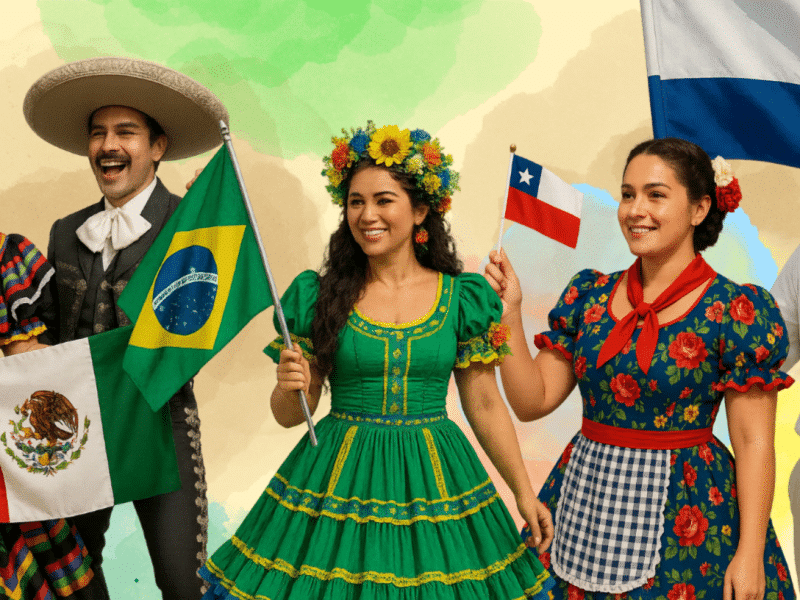When Cultural Appropriation Happens Outside of Halloween
Culture is beautiful, unique, and worthy of admiration. The line must be drawn when that same culture is exploited, ridiculed, or outright stolen. And it happens more often than you think.

Representation matters to people of color, but it must be done right. As much as social media has helped influencers and entrepreneurs access many potential customers with a click of a button, it has also provided a public platform for whistleblowers to call out bad behavior such as cultural appropriation with all the necessary receipts. The line between cultural appreciation and appropriation can be pretty thin.
On the Anti-Oppression Resource and Training Alliance’s (AORTA) website, Nisha Ahuja, an actor and wellness coach, wrote that “Cultural appropriation is taking a symbol or cultural practice out of its original context and then plunking it down somewhere else. And it becomes devoid of its original meaning. The people who are doing the extraction often are benefiting, whether through personal gain, financial gain, or entertainment.”
Adrienne Keene, author of the blog Native Appropriations, wrote, “There is always an inherent power imbalance — it is the dominant group taking from a marginalized group. With cultural appropriation, this also often plays out in the realities of colonization: It is the colonizer taking from the colonized.”
Yet with the abundance of information and resources available on-demand and at our fingertips, some continue to make poor decisions and, as a result, get justly called out for it. So what are some blatant examples? This goes well beyond Halloween costumes, which is important to note. Cultural appropriation takes shape every day of the year and in fundamental structures of our society. We gathered a few of the worst offenders and the resulting accountability that ensued:
Self-proclaimed Culture Leech, Jessica Krug
Jessica Krug, a former associate professor of History and Africana Studies at George Washington University, revealed in a Medium post that she is a white Jewish woman who has posed as an Afro-Latina for her entire career. She sometimes used the persona “Jess La Bombera” like she did when she testified during a New York City Council meeting about police brutality this summer using a heavy accent that we all now know was fake.
She called herself a “culture leech” in her Medium post and wrote that people should cancel her, but that self-deprecation seemed to be an act. According to The Cut, Krug posted the online confession before she was exposed after a group of Black and Latinx scholars learned the truth. According to a statement from The George Washington University Department of History, Krug resigned from her position in September 2020.
“With what she has termed her “audaciously deceptive” appropriation of an Afro-Caribbean identity, she has betrayed the trust of countless current and former students, fellow scholars of Africana Studies, colleagues in our department and throughout the historical discipline, as well as community activists in New York City and beyond,” the statement reads. “The discipline of history is concerned with truth telling about the past. With her conduct, Dr. Krug has raised questions about the veracity of her own research and teaching.”
No Elotes Without Representation
Protesters gathered online and offline after restaurateurs Brian and Sarah Ingram, who are not Mexican, announced their plans to open a Mexican-inspired cantina called Elotés Woodfired Cantina in Minneapolis this summer. According to Eater Twin Cities, the Mexican-American protesters took issue with the use of the word “elote” in the restaurant name especially since none of the restaurant owners are Latine.
Protesters called the ingredient sacred to Mexican heritage and culture. Fortunately, the Ingrams were receptive to the criticism and listened to the community’s concerns when they gathered outside the restaurant. The restaurant opened in September as Woodfired Cantina, dropping “elotes” from the title.
The Usual Suspect: Halloween
After the success of the animated film, “Coco,” the world was exposed to the highly spiritual and revered Día De Los Muertos, the Mexican holiday that celebrates the loved ones we’ve lost, which is right after Halloween. With the growing popularity of the holiday, it’s important to remember that Latine culture isn’t a costume. Dressing as a caricature of Latine culture such as a cholo/a or putting on a sombrero and a fake mustache is cultural appropriation when the “costume” is someone else’s actual identity.
It’s a fine line between appropriation and appreciation, but it often boils down to intention. Before you paint your face to resemble a sugar skull associated with Día De Los Muertos, the question that’s recommended to ask is, why? For those moments you find yourself straddling the line, AORTA has a list of clarifying questions to ask.

La Chingona Cannabis’ Fabricated Origin Story
When Susie Plascencia received a message from La Chingona Cannabis on Instagram, she wanted to learn more about the three Latina sisters/founders celebrated on the company’s website. She learned that the origin story was completely fabricated by Michael Kaiser, the true owner and founder of the cannabis company. Of course, there was backlash once people learned that truth.
Plascencia told Luz Media in a phone interview that she saw an opportunity for the brand to empower women, but as she learned more about the company, she decided to help spearhead a boycott in July. “With La Chingona, we didn’t just boycott them with nothing. We didn’t just say, ‘hey, we think this brand is doing this, let’s just destroy it.’ We did our due diligence, and we did a whole investigation first,” Plascencia said. Kaiser eventually apologized on Instagram, but followed it by blaming others for destroying the brand.
A Stolen Mask and a Guilty Conscience
This situation is an example of power dynamics at play when Latina small business owners are left vulnerable to a white-dominated power structure. Karen Perez, owner of Second Wind, released a line of fashionable face masks during the second COVID-19 pandemic summer including the Tina, a linen mask that comes in five neutral colors with a detachable gold chain. According to Refinery29, the Latina designer was “extremely excited” when influencer Danielle Bernstein, of WeWoreWhat and with 2.5 million Instagram followers, reached out for a mask.
Perez told Refinery29 that her heart dropped when she received another message from Bernstein letting her know that she was also releasing masks with a detachable chain. She wrote that her masks were inspired by sunglass chains and didn’t want Perez to think she was copying her, but Diet_prada, a popular fashion watchdog instagram account, posted side by side photos of the two masks on Instagram, and it’s hard to argue that the masks aren’t similar. Bernstein said in an Instagram story that the accusations that she stole or solicited the designs are false and donated all the masks to frontline healthcare workers.




